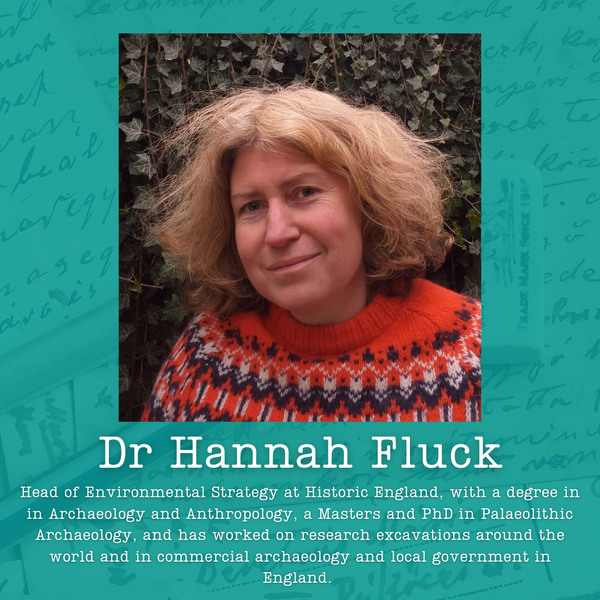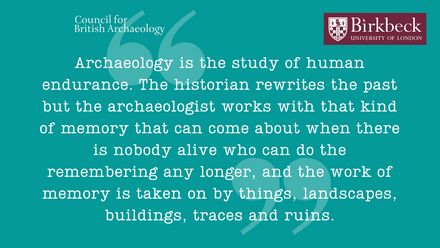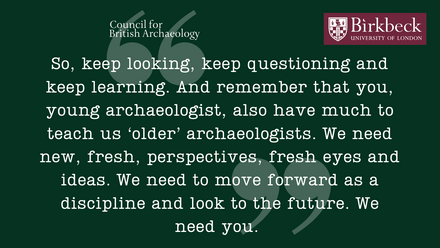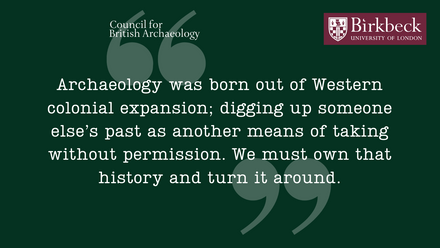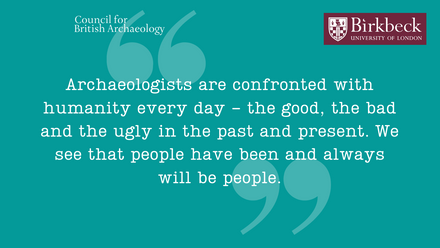Letter to a young archaeologist, January 2022

Dear young archaeologists, fellow time travellers, future guardians of planet earth,
When I was at school in the ‘80s and ‘90s I learned about global warming, what we were doing to the planet, and how bad it was. My parents were told ‘don’t leave a mess for your children’. But no one listened. Now those children are grown up and we have also failed. We are leaving a mess for your generation to clear up, and for that I am truly sorry. But I want to give you some hope. As an archaeologist you won’t be rich, you are unlikely to be famous, but you can help to save the planet.
For as long as I can remember I wanted to be an archaeologist. I’m very lucky I made that dream come true, but I also wanted to make the world a better place and fix global warming. It took me until I was a parent myself to work out how to do both and now I talk to all sort of important sounding people around the world (including at COP) about why archaeology is so important for a sustainable future.
Why am I so sure archaeologists can help? Well, we have a few superpowers that the world really needs right now: story telling; time travel; evidence of how people change the environment; and evidence of how people can live without fossil fuels.
My friend Marcy Rockman, says everywhere has a climate story, and that archaeologists can use their skills of gathering and interpreting evidence to tell those stories: what places were like, how people lived in those places, what worked, what didn’t and how the environment changed as a result of what people did. Telling ‘climate stories’ helps people understand how places have changed and will change, and what it means for the people living there so they can prepare for those changes.
These climate stories help people travel through time – to places that they might not recognise from the past and to those places in the future. One reason that time travel and storytelling are so important is they help people understand how humans change, and are changed by, the environment. We have a problem that is caused by people and people need to be part of the solution. But in the past people lived without harmful fossil fuels and we can learn from that. We don’t need people to go back to Iron Age living (though I do secretly want to live in a roundhouse) but we can use archaeology to show how people were using the land, managing water, building structures without fossil fuels, and show what was sustainable, what worked, and what didn’t. We can learn from that as much as we can learn from new technology.
I used to think it was just me that talked about these sorts of things but recently Hoesung Lee, Chair of the IPCC, one of the most important people in climate change, said pretty much the same thing:
‘Our culture and heritage are windows into millennia of human experience from which we can draw and use them to shape our strategies to adapt and to make our communities more resilient to climate change risks and challenges. Are we capable of projecting from our collective past into our shared future? I believe yes, we are. I believe this is not only possible, but it is imperative that we do so.’ Hoesung Lee, IPCC Chair 6 December 2021
I think that’s a pretty good challenge. So my main message to you is go forth, study archaeology and help to save the world!
Good luck!
Hannah
